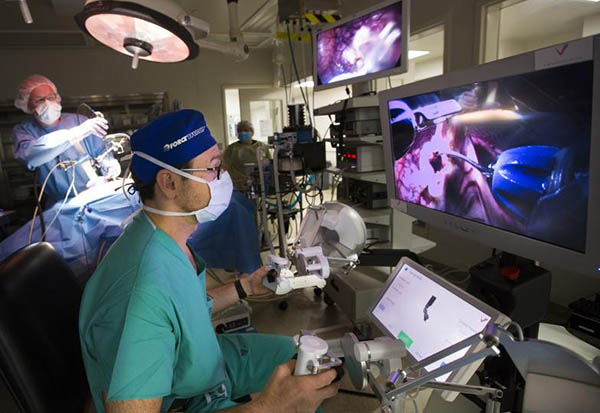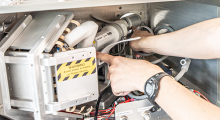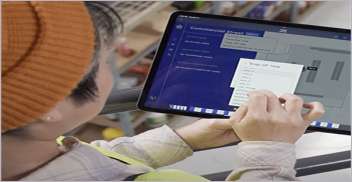Virtual Incison Corp. today announced that Michael A. Jobst, M.D., has performed the first procedure using its MIRA surgical platform at Bryan Medical Center in Lincoln, Neb.
“The MIRA platform is a true breakthrough platform for general surgery, and it is extremely gratifying to be the first surgeon in the world to use the system,” said Dr. Jobst. “The procedure went smoothly, and the patient is recovering well. I’m excited to play a part in taking the first steps toward increasing access to robotically assisted surgery, which has clear benefits for patients.”
Many hospitals currently offering robotic surgeries face challenges with scheduling because the demand for minimally invasive procedures exceeds the number of available robots. Capital costs often prohibit hospitals from purchasing additional platforms, according to Virtual Incision. MIRA is intended to present a cost-effective option that will expand access to a larger number of patients.
Virtual Incision makes MIRA portable
Virtual Incision said it is currently focused on expanding access to minimally invasive colorectal and lower gastrointestinal procedures, the fastest-growing operational areas for patients in the U.S., with more than 400,000 surgeries performed each year. Though significant technological advancements and improved patient outcomes can reduce the total cost of care, the adoption of minimally invasive colon resection has been limited, despite increasing rates of these conditions.
The Lincoln, Neb.-based company said its MIRA (“miniaturized in vivo robotic assistant”) platform is the first of its kind, offering mobility, flexibility, and accessibility to make minimally invasive procedures more accessible. Virtual Incision said the system is designed to enable complex, multi-quadrant abdominal surgeries using a simple, handheld device.
MIRA features a self-contained surgical device that is inserted through a single midline umbilical incision in the patient’s abdomen. The company said its technology can enable complex multi-quadrant abdominal surgeries using existing tools and techniques familiar to surgeons. It does not require the dedicated operating room or specialized infrastructure typically required for “mainframe” robotic systems, claimed Virtual Incision.
The company added that it expects its robot to be significantly less expensive than existing alternatives for laparoscopic surgery because of its small size. Weighing only two pounds, the miniature platform has full robotic capabilities, and it can easily be moved from room to room, Virtual Incision said.
MIRA is an investigational device that is limited to investigational use in the U.S.
.jpg)
Procedure a milestone toward commercialization
MIRA's first surgery was a robotically assisted right hemicolectomy procedure, which was completed via a single incision within the navel. It was part of a clinical study of MIRA under an Investigational Device Exemption (IDE) from the U.S. Food and Drug Administration (FDA). The study will be conducted at a limited number of U.S. hospitals in support of the system’s regulatory pathway to approval.
“We are ushering in a new era of innovation to bring the benefits of robotic surgery to a broad range of facilities, with the goal of providing access to patients everywhere,” said John Murphy, CEO of Virtual Incision CEO. “This first procedure is an incredible milestone that further advances our goal to expand access to the benefits of minimally invasive robotic procedures to patients to virtually any U.S. healthcare provider, regardless of the distance from an urban center. We look forward to expanding our clinical trial to additional sites and states in the coming months.”
“The aim of creating a miniature robotic platform has always been to enable surgical teams to perform with greater operating room efficiency and surgical precision,” said Dmitry Oleynikov, M.D., co-founder and chief medical officer of Virtual Incision. “Today, we saw firsthand the benefits that a robotic-assisted platform can provide over conventional surgery,”
While Virtual Incision is focusing first on colon resection, it has begun developing procedure-specific mini-robots for additional operations, potentially enabling millions more surgical procedures each year. The company noted that it is building its innovations on more than 200 patents and applications.
Article topics
Email Sign Up
















